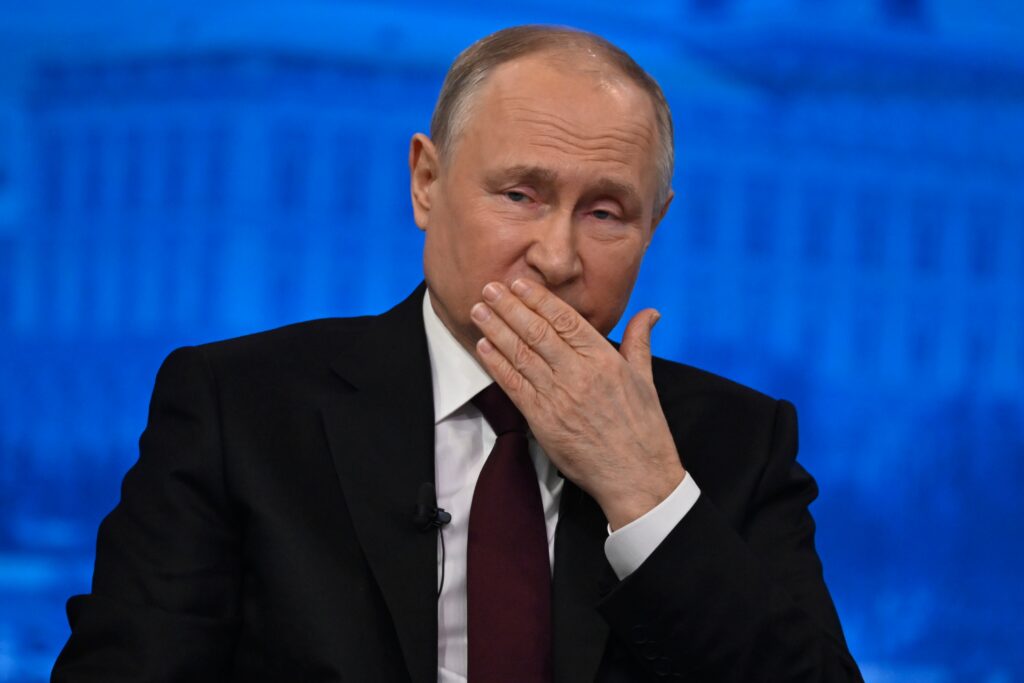In a recent NBC interview, former President Donald Trump strongly criticized Russian President Vladimir Putin. Trump was angered by Putin’s comments about Ukraine’s leadership. Putin suggested that the UN should temporarily control Ukraine until a “competent” government could take power. Trump responded harshly, saying Putin’s remarks made him “very angry” and “pissed him off.” He also dismissed Putin’s suggestion, saying, “New leadership means no deal for a long time — that’s the problem.”
Trump rejected Putin’s statement, calling it “not going in the right direction.” He made it clear that he disagreed with Putin’s approach to the Ukraine conflict.
Trump Issues Strong Warning to Russia on Oil Tariffs
Trump also warned Russia in the same interview. He said that if Russia blocks peace talks in Ukraine, he will impose harsh tariffs on Russian oil. He made it clear that he would target “all oil coming out of Russia.” Trump said that if he believes Russia is responsible for blocking peace, he would impose what he calls “secondary tariffs.”
The president emphasized that these tariffs would have a serious impact on Russia’s economy. This is part of his tough stance on dealing with countries he believes are a threat to peace. Trump also plans to meet with Putin soon to discuss the situation in Ukraine.
Ceasefire Fails to End Violence in Ukraine
Earlier this month, Russia and Ukraine agreed to a 30-day ceasefire in the Black Sea region. However, despite the agreement, fighting has not stopped. Both countries continue to carry out missile and drone strikes. This shows that the ceasefire has not been very effective. The fighting on the ground continues, and there are concerns that peace is still far off.
World leaders are pushing for a more lasting solution, but there has been little progress. The fragile truce has not reduced the violence, and tensions remain high.
Trump Warns Iran of Bombing if Nuclear Deal Fails
In a separate interview, Trump issued a strong warning to Iran. He said the U.S. would take military action if Iran refuses to agree to a new nuclear deal. Trump said, “If they don’t agree, there will be bombing like they’ve never seen before.” His warning is a reminder of his previous approach to international relations, which included using military force as a possible response.
Trump’s words are in sharp contrast to the diplomatic efforts of the Biden administration, which is trying to revive the 2015 Iran nuclear deal. Trump’s approach suggests he would be much tougher on Iran, using military strikes if necessary.
Trump also mentioned that he would apply secondary tariffs on Iran if the country continues its nuclear progress without reaching an agreement. This shows that Trump plans to use economic pressure as a tool in these negotiations.
Iran Rejects Direct Talks with the U.S.
In response to Trump’s threats, Iran rejected the idea of direct talks with the U.S. President Ebrahim Raisi of Iran said on Sunday that the country would not hold direct nuclear talks with Washington. This was a clear refusal to engage in negotiations with the U.S.
The rejection followed Trump’s letter to Iran’s Supreme Leader Ali Khamenei, in which he suggested direct talks. Despite some indirect communications, Iran has dismissed any chance of direct engagement with the U.S. This marks a significant point in the ongoing tensions between the two countries.
Global Tensions Continue as World Leaders Struggle to Find Solutions
As tensions rise in both Ukraine and Iran, world leaders continue to search for peaceful solutions. Trump’s hardline approach to both Russia and Iran is in sharp contrast to other leaders who are pushing for diplomatic negotiations.
The situation in Ukraine remains uncertain, and the ceasefire has done little to stop the violence. Trump’s threat to impose tariffs on Russian oil could escalate tensions further if Russia continues to block peace efforts. Meanwhile, his tough stance on Iran suggests that military action may be on the table if Iran does not agree to a new nuclear deal.
With so much at stake, the coming weeks could be critical in determining the future of these international conflicts. The world watches closely as the U.S. and its allies try to find lasting solutions to these complex problems.


